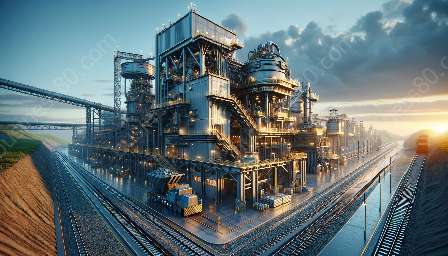Crushing plays a fundamental role in the mineral processing and metals & mining industries, where it is a vital process for breaking down solid materials to extract valuable minerals and metals. It involves various techniques, equipment, and considerations that impact the efficiency and success of the extraction operations. In this comprehensive guide, we delve into the world of crushing, exploring its significance, different methods, technological advancements, and its implications for the mineral processing and metals & mining sectors.
The Significance of Crushing in Mineral Processing and Metals & Mining
Crushing is a critical stage in the extraction of minerals and metals from the earth. It is the initial step that allows for the liberation of valuable components from the raw ore or rock, enabling subsequent processes such as grinding, separation, and concentration. Effective crushing not only facilitates the recovery of target minerals and metals but also influences the overall efficiency, cost-effectiveness, and environmental impacts of the extraction operations.
The Process of Crushing
Crushing encompasses various techniques aimed at reducing the size of solid materials. These techniques include compression, impact, and attrition, each of which is suitable for different types of materials and desired end products. Common equipment used for crushing includes jaw crushers, gyratory crushers, cone crushers, and impact crushers. The choice of crushing equipment and techniques depends on factors such as the type of material, required particle size, and desired end products.
Types of Crushing Methods
1. Primary Crushing: Involves breaking the raw material to a manageable size before further processing. It often employs heavy-duty equipment such as jaw crushers and gyratory crushers.
2. Secondary Crushing: Refines the material to a finer size after the primary crushing stage. Cone crushers and impact crushers are commonly used for secondary crushing.
3. Tertiary Crushing: Aims to produce even finer materials and may involve specialized equipment such as vertical shaft impact crushers (VSI) and high-pressure grinding rolls (HPGR).
Technological Advancements in Crushing
Advances in crushing technology have significantly improved the efficiency, capacity, and sustainability of mineral processing and metals & mining operations. Innovations such as automation, advanced monitoring systems, and intelligent control systems enhance the precision and control of crushing processes, leading to higher productivity and reduced downtime.
Impact of Crushing on Metals & Mining
The efficiency and effectiveness of crushing directly impact the success of metals & mining operations. Well-executed crushing processes contribute to higher production rates, improved product quality, and reduced energy consumption, thereby enhancing the overall competitiveness and profitability of the mining industry.
Conclusion
Crushing is an indispensable process in mineral processing and metals & mining, driving the extraction of valuable minerals and metals while significantly influencing operational efficiency and environmental sustainability. Understanding the various crushing methods, equipment, and advancements is crucial for optimizing extraction processes and ensuring the long-term success of the mineral processing and metals & mining industries.

